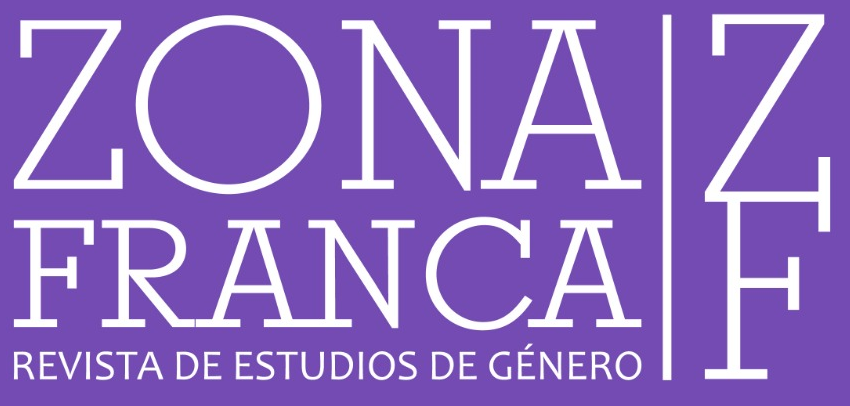La ontología acuosa de Luce Irigaray. Aportes para un nuevo materialismo hidrofeminista
DOI:
https://doi.org/10.35305/zf.vi29.193Palabras clave:
nuevos materialismos, agua, cuerpo, feminismo, falogocentrismoResumen
Las ideas feministas de Luce Irigaray señalan críticamente la existencia de un orden simbólico falogocéntrico. Se ha enfatizado que sus aportes explican cómo las mujeres no logran emerger bajo sus propios términos, sino a condición de los grilletes de una mediación representacional que las entrampa como otredad degradada respecto de lo Mismo. Mucho menos se han señalado sus reflexiones ontológicas que postulan la peligrosidad de la potencia gestacional y generativa de la materia respecto de un orden que abstrae el origen y sostiene la pretensión desencarnada del Logos. Ante el prisma del postestructuralismo feminista norteamericano —desde las últimas décadas del siglo XX—, la continuidad entre feminidad y materia fue pobremente interpretada y, consecuentemente, su propuesta en torno a la diferencia fue denostada bajo la noción de esencialismo. El presente aporte pretende poner en acción el nuevo materialismo feminista de Astrida Neimanis. Su preocupación ontológica por la materialidad del Agua nos provee de herramientas que permiten, por un lado, hacer justicia a la complejidad de la propuesta líquida y acuosa irigariana y, por otro lado, consolidar una mirada posthumana y transcorporea para un hidrofeminismo que cultive una responsabilidad con el mundo y reconozca nuestra deuda y continuidad material con él.Descargas
Citas
AHLERSA, Rhodante y ZWARTEVEEN, Margreet (2009). The water question in feminism: water control and gender inequities in a neo-liberal era. Gender, Place and Culture, 16(4), 409-426.
ALAIMO, Stacy (2008). Trans-corporeal feminisms and the ethical space of nature. En Stacy ALAIMO y Susan HECKMAN (Ed.). Material Feminisms (pp. 237-264). Bloomington and Indianapolis: Indiana University Press.
ALCOFF, Linda (1988). Cultural Feminism versus Post-Structuralism: The Identity Crisis in Feminist Theory. Signs, 13(3), 405-436.
BARAD, Karen (2007). Meeting the universe halfway: Quantum physics and the entanglement of matter and meaning. Durham, NC: Duke University Press.
BENNETT, Jane (2010). Vibrant matter: A political ecology of things. Durham, NC: Duke University Press.
BRAIDOTTI, Rosi (2002). Metamorphoses: Towards a materialist theory of becoming. Malden, MA: Blackwell.
BRAIDOTTI, Rosi (2010). The politics of “life itself” and new ways of dying. En Diana COOLE y Samantha FROST (Ed.). New materialisms: Ontology, agency, and politics (pp. 201-219). Durham, NC: Duke University Press.
BORDO, Susan (1993). Unbearable Weight: Feminism, Western Culture, and the Body. Berkeley: University of California Press.
BUTLER, Judith (2007 [1990]). El género en disputa. El feminismo y la subversión de la identidad. Barcelona: Paidós.
BUTLER, Judith (2008 [1993]). Cuerpos que importan. Sobre los límites materiales y discursivos del “sexo”. Buenos Aires: Paidós.
CANTERS, Hanneke y JANTZEN, Grace (2014). Forever Fluid: A Reading of Luce Irigaray's Elemental Passions. Manchester University Press.
COOLE, Diana y FROST, Samantha (2010). New materialisms: Ontology, agency, and politics. Durham, NC: Duke University Press.
DELEUZE, Gilles. (2002 [1968]). Diferencia y repetición. Buenos Aires: Amorrortu.
FEMENÍAS, María Luisa (2003). Judith Butler: Introducción a su lectura. Buenos Aires: Catálogos.
FOUCAULT, Michel (2008 [1976]). La voluntad de saber. Historia de la sexualidad Vol. 1. Siglo XXI: México.
FOX KELLER, Evelyn (1985). Reflections on Gender and Science. New Haven: Yale University Press.
FREUD, Sigmund (1979 [1926]). ¿Pueden los legos ejercer el análisis? En Obras Completas, Tomo XX. Buenos Aires: Amorrortu.
GROSZ, Elizabeth (2010). Feminism, materialism, and freedom. En Diana COOLE y Samantha FROST (Ed.). New materialisms: Ontology, agency, and politics (pp. 139-157). Durhman: Duke University Press.
HARAWAY, Donna (1995 [1991]). Ciencia, cyborgs y mujeres. La reinvención de la naturaleza. Madrid: Cátedra.
HARAWAY, Donna (1999 [1992]). Las promesas de los monstruos: una política regeneradora para otros inapropiados/bles. Política y Sociedad, 30, 121-63.
HIRD, Myra (2004). Sex, gender, and science. New York: Palgrave Macmillan.
IRIGARAY, Luce (1985). Cuerpo a cuerpo con la madre. En Cuadernos inacabados 5 (pp. 5-17). Barcelona: La sal.
IRIGARAY, Luce (1991). Marine Lover of Friedrich Nietzsche. New York: Columbia University Press.
IRIGARAY, Luce (1993). Sexes and Genealogies. New York: Columbia University Press.
IRIGARAY, Luce (1999). The forgetting of air in Martin Heidegger. University of Texas Press.
IRIGARAY, Luce (2007 [1974]). Espéculo de la otra mujer. Madrid: Akal.
IRIGARAY, Luce (2009 [1977]). Ese sexo que no es uno. Madrid: Akal.
KIRBY, Vicki (2011). Quantum anthropologies: Life at large. Durham, NC: Duke University Press.
MIELLE, Chandler y NEIMANIS, Astrida (2013). Water and Gestationality: What Flows beneath Ethics. En Cecilia CHEN, Janine MACLEOD y Astrida NEIMANIS (Ed). Thinking with water (pp. 61-83). McGill-Queen's University Press.
NEIMANIS, Astrida (2013). Feminist subjectivity, watered. Feminist Review, 103, pp. 23-41.
NEIMANIS, Astrida (2017a). Bodies of Water. Posthuman Feminist Phenomenology. Bloomsbury: London.
NEIMANIS, Astrida (2017b). Nature Represents Itself: Bibliophilia in a Changing Climate. En Vicki Kirby (Ed). What if Culture was Nature all Along? (pp. 179-198). Edinburgh University Press.
NEIMANIS, Astrida y LOEWEN WALKER, Rachel (2014). Weathering: Climate Change and the “Thick Time” of Transcorporeality. Hypatia, 29(3), 558-575.
NEIMANIS, Astrida, ÅSBERG, Cecilia y HEDRÉN, Johan (2015). Four Problems, Four Directions for Environmental Humanities: Toward Critical Posthumanities. Ethics and the Environment, 20(1), 67-97.
PÉREZ-GIL, María del Mar (2011). Mary and the Carnal Maternal Genealogy: Towards a Mariology of the Body. Literature & Theology, 25(3), 297-311.
RICH, Adrienne (2001 [1986]). Sangre, pan y poesía. Prosa escogida: 1979-1985. Madrid: Icaria.
WILSON, Elizabeth (2015). Gut Feminism. Durham: Duke University Press.
WINNUBST, Shannon (1999). Exceeding Hegel and Lacan: Different fields of pleasure within Foucault and Irigaray. Hypatia 14(1), 13-37.





